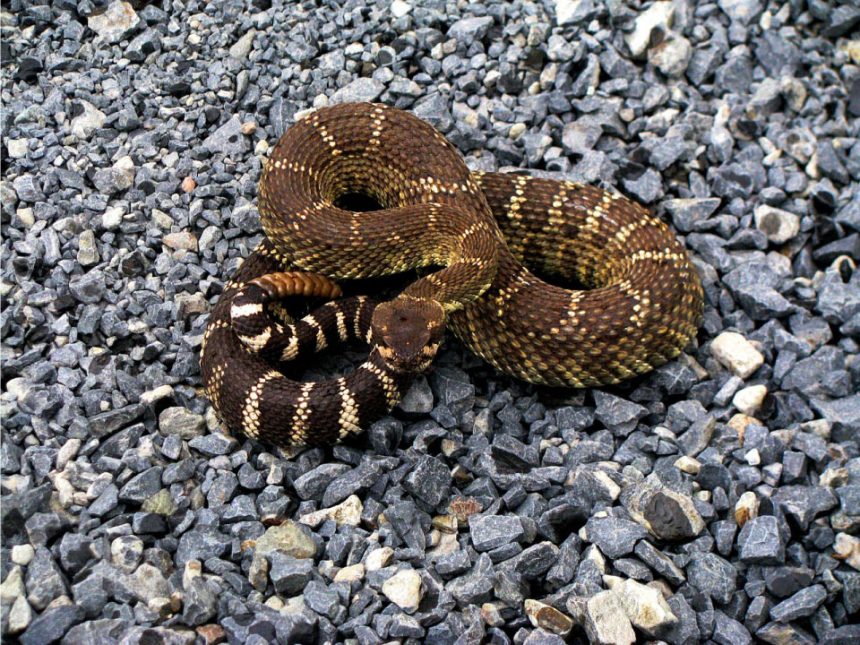Rattlesnakes are most active in Arizona in the warmer months. They usually come out some time in March and hibernate starting in November. Of course, it is totally dependent on the weather. Dogs are 20 times more likely than humans to be struck by a rattlesnake and 25 times more likely to die from the bite. Snake bites can be life threatening, extremely painful, and they are expensive to treat. Curiosity or a protective instinct can put our dogs at risk. Most dogs stumble onto a snake by accident, so most bites occur on the face or legs.
A rattlesnake bit is hemotoxic, which means it affects blood vessels and the blood itself. The toxin causes the blood vessels to be become leaky, which results in massive amounts of swelling at the site of the bite. The venom can also affect the body’s ability to clot the blood, which can lead to uncontrolled bleeding. Significant blood loss will result in shock and death. Bites to the face are generally more serious because of the amount of swelling, which can result in difficulty in breathing.
If your dog is struck by a snake, the first thing to do is to try and stay calm. If possible, carry the dog back to the car and head to the nearest emergency clinic. If your dog is too large to carry, then, walk slowly to the car. Do not run with the dog. It is also not advisable to place a tourniquet on the dog or to try and suck the venom out of the dog. Even dogs that have been vaccinated should be immediately evaluated by a veterinarian. The dog’s blood will be checked to assess the clotting ability. Pain medication will be given and intravenous fluids may be needed. Antivenin may be recommended. Antivenin consists of antibodies to snake venom. It is given intravenously to counteract the effects of venom. Antivenin must be given within four hours of the bite to be effective. It is expensive and most general practice veterinarians will not carry the product, so your pet will need to be evaluated at an emergency clinic.
Snake aversion training is available. Check with Gerad if you want more information. A rattlesnake vaccine is available and can be considered for dogs with high risk of snake exposure. The rattlesnake vaccine is made up of components of venom from the western diamondback snake. It is meant to be administered to the otherwise healthy dogs to decrease the severity of rattlesnake bites. The vaccine works by inducing the dog’s immune system to produce antibodies to the toxin. Initially, the vaccine should be given twice with 30 days between each dose. The vaccine should be given once a year approximately one month prior to “snake season.” In places where the snakes are out year round, the vaccine should be given twice a year.
No vaccine is effective 100% of the time because its effectiveness is based on the animal’s immune system. A vaccinated dog can still die from a snake bite if enough venom is injected. The reported benefits of the vaccine include delay in onset of symptoms, fewer and less severe symptoms, decreased mortality and faster recovery. The average cost of the vaccine is around $35 plus the cost of the office visit.
Have a question or a topic you would like to see in the blog? Feel free to send me an email, talk to me at class, or have your trainer forward a message to me.
Mary K. Quinn, DVM
Diplomate ACVS
Dogs4Vets Medical Trainer
[email protected]


